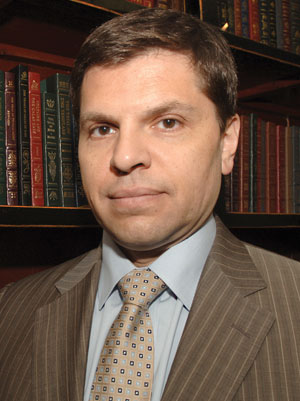As B.C. lawyers start their own legal aid boycott nearly two years after a last-minute deal netted additional funding for Legal Aid Ontario in response to similar actions in this province, the organization is facing tough criticism from criminal defence counsel here who say it hasn’t been living up to its end of the bargain.

The Criminal Lawyers’ Association boycotted legal aid in 2010 as part of a call on the provincial government to increase funding for the cash-strapped system.
A deal reached in January 2010 led to a commitment of $150 million in additional funding for the program over several years.
But criminal defence lawyers say that despite the additional funding, LAO has taken a step backwards when it comes to the number of certificates it issues and attracting counsel to legal aid cases again, a fact they believe could spell trouble for B.C. duty counsel mounting their own action right now.
“While the government agreed to try and restore the funding that was choked out of the legal aid system by years of underfunding, legal aid has clawed some of those gains back by significantly decreasing the number of certificates it issues to people who need legal aid and has decreased the total amount paid to service providers for the work that they do,” says Paul Burstein, a criminal lawyer and partner at Burstein Bryant in Toronto.
“B.C. needs to know this is a long-term fight . . . and it won’t be the first battle. It will require many more before the government and public are made to see how important a properly funded legal aid program is.”
B.C. duty counsel began withdrawing their legal aid services earlier this month in an effort to draw attention to a system that Bentley Doyle, spokesman for the Trial Lawyers Association of British Columbia, says is in need of a $100-million hike in funding to prevent it from collapsing beyond repair.
Lawyers plan to withdraw their services on an increasing basis, beginning with the first two weeks next month, the first three weeks in March, and the entire month of April.
For his part, Doyle says the withdrawals have garnered plenty of support. “So far, the withdrawals have caused delays in more than 40 provincial courthouses,” he notes.
“It has the court staff answering questions and it makes people aware — the government, the public, court staff, and the people who use the legal aid system — of just what the system is facing.”
But if B.C. duty counsel follow the path of their Ontario colleagues, they could end up feeling alienated, says Burstein, who adds that many criminal defence lawyers in Ontario have refused to accept legal aid work even after the boycott ended in 2010.
“Now lawyers don’t want to risk doing the extensive amount of work that is required of them only in the hope that legal aid may pay them. It’s just way too risky for them.
In the past, lawyers would negotiate what an appropriate budget was for a case, but under the current approach, legal aid has lawyers do the required work and then leaves them to gamble on whether they will get the money. That’s why many lawyers are thinking twice about taking legal aid certificates.”
But a spokesman for LAO said in an e-mail that the organization has successfully established or is developing several changes as a result of the 2010 boycott that address those concerns, including the implementation of block fees last year.
“Block fees are a new payment program for criminal lawyers designed to improve results for clients, provide more financial certainty and less red tape for lawyers, and promote justice system efficiency,” says Kristian Justesen.
“LAO began paying approximately 75 per cent of all its criminal certificates by block fees in May 2011. The block-fee program included new block fees for LAO’s most vulnerable clients, including aboriginal clients and clients with serious mental health illnesses.”
Justesen added that LAO has created a complex-case rate panel that allows for a higher tariff for serious criminal matters. It has also increased hourly rates and developed a mentoring program for junior lawyers.
But another defence lawyer agrees that those actions aren’t enough. “Although certain certificates have become more valuable on the summary side of things, other certificates have decreased in value in a way that again discourages involvement from a certain segment of the bar,” says Frank Addario, a criminal defence lawyer at Sack Goldblatt Mitchell LLP.
“Legal aid’s response to increased funding was to manage existing funds in a way that decreases the number of certificates overall and, two years later, consumers are the ones being punished.”
Still, Addario says the 2010 boycott could provide B.C. lawyers with an important lesson.
“There was a 20-year period of neglect during which the bar was in a supine position because they had passively accepted the government’s refusal to fund the legal aid program and so it continued to be degraded until the bar stood up and said something.
That taught them that the criminal bar can influence funding decisions and they can do it well.”
In the meantime, he has a warning: “The first boycott was just a preview of what’s coming.
The bar is angrier and more determined now than I’ve ever seen it, and that’s a direct result of the way legal aid has responded to the boycott, the additional funding, and its relationship with the bar.”
For more, see
"Boycott expansion raises alarm" and
"Legal aid boycott expands outside Toronto."

 The Criminal Lawyers’ Association boycotted legal aid in 2010 as part of a call on the provincial government to increase funding for the cash-strapped system.
The Criminal Lawyers’ Association boycotted legal aid in 2010 as part of a call on the provincial government to increase funding for the cash-strapped system.